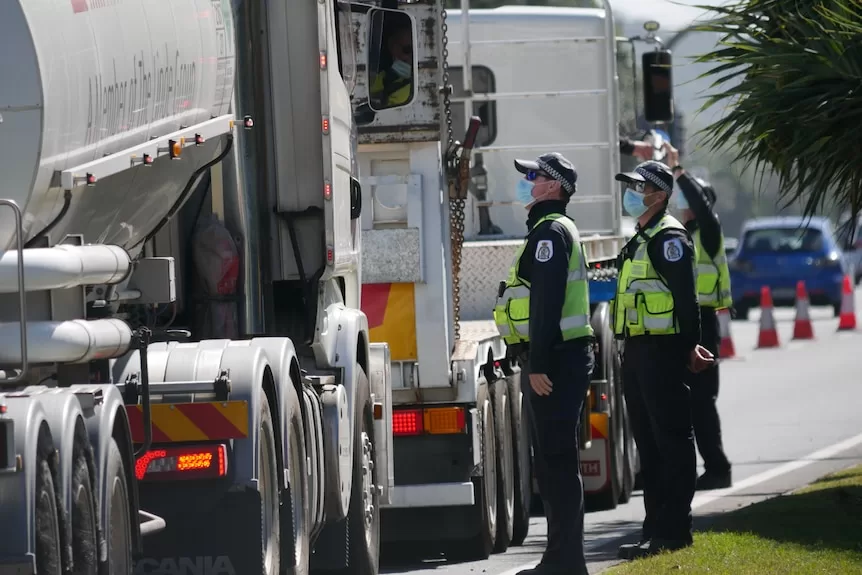- In short: Border closures and restrictions, such as mask mandates, were introduced by the Queensland government as COVID-19 spread.
- The State Penalties Enforcement Registry is chasing down more than $3 million in unpaid pandemic-related penalties.
- What’s next? It has warned that debts do not go away and will take enforcement action against those who do not pay.
Queensland authorities are pursuing more than $3 million in outstanding COVID 19-related penalties years after the state’s borders reopened and most restrictions were lifted.
Throughout the course of the pandemic, thousands of fines worth millions of dollars have referred to the State Penalties Enforcement Registry (SPER) to ensure rule breakers pay what they owe.
As of May this year, there are about $3.6 million in debts related to 2,186 pandemic fines that remain unpaid.
The unpaid debts include fees that have been added by SPER, and also include the outstanding amounts of fines that have already been partially paid.
Off the $3.6 million that is yet to be paid, about 47 per cent is subject to active enforcement from SPER and roughly 37 per cent is being managed under a payment plan.
A SPER spokesperson said where individuals or organisations failed to deal with their debt, the agency would take enforcement action to collect the unpaid penalty.
“SPER debts don’t go away, so if you’ve got a SPER debt the best thing you can do is pay it now,” the spokesperson said.
“Anyone having trouble paying their SPER debts should contact SPER on 1300 365 635 to discuss their payment options and avoid enforcement action.”
The outstanding fines are linked to breaches of public health directions and border directions that were made during the pandemic.
Nearly half a million written off
Since the beginning of the pandemic in 2020, more than $7.5 million in fines had been referred to SPER, which included additional fees added by the collection agency.
More than half of the outstanding debt had been paid or was on a payment plan, while 5 per cent had been withdrawn by authorities.
SPER had also written off 219 COVID 19-related fines worth about $400,000 but did not provide specific reasons for the written off debts.
The agency can wipe debts from its books in circumstances such as when the debtor has died, the debtor cannot be located, or reasonable actions to recover the debt have been exhausted.
SPER’s enforcement powers allow them to suspend driver’s licences or even seize somebody’s property to sell at auction.
Queensland’s borders reopened in December 2021, with all remaining domestic border restrictions lifted in January 2022.
In March 2022, the state government also eased many restrictions, such as most mask-wearing requirements and density limits at venues.
As of April this year, the total amount of debt sitting on SPER’s books was worth more than $1.3 billion.
Get local news, stories, community events, recipes and more each fortnight.
